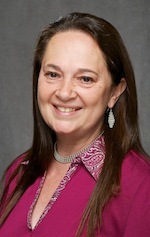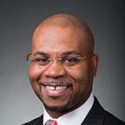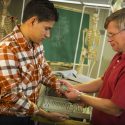Professor wins national honor for expanding access to education
She may be an expert on Jane Austen and 19th century literature, but University of Wisconsin–Madison English Professor Emily Auerbach‘s real passion is helping people use education as a springboard out of poverty.

Emily Auerbach
On Sunday, Auerbach will be honored by one of the nation’s leading higher-education organizations for three decades of work expanding university access to more diverse populations. The Association of Public and Land-grant Universities (APLU) will honor Auerbach with the Commission on Access, Diversity and Excellence (CADE) Distinguished Service Award at its annual meeting in Orlando, Florida.
In nominating Auerbach — the first front-line faculty member to receive the honor — UW officials noted the success of the UW Odyssey Project. Odyssey, founded by Auerbach in 2003, enrolls 30 students each year in a challenging college humanities class. Odyssey students study literature, philosophy, history and art, gaining six credits in English from UW–Madison.
“I am passionate about diversity and access, so this is a great honor — one I share with a team of dedicated faculty, staff and partners, as well as my eloquent Odyssey students,” Auerbach says.
“A student once told me that ‘the Odyssey Project allowed me to unwrap my gifts and rewrite the story of my life.’ My goal as an outreach professor and public radio host has been to bring the riches of the liberal arts to a wider, more diverse population, and I’m grateful to the UW for believing in the Wisconsin Idea.”
Auerbach based the Odyssey program, in part, on the model of Kentucky’s Berea College. Her parents — Wanda Irwin Auerbach, who grew up in Appalachia without running water, and Robert Auerbach, who escaped Nazi persecution in Germany — met at Berea while taking advantage of the free four-year education the college provided to poor students.
“We are pleased that Professor Auerbach’s vision and dedication to the Odyssey project have been recognized with this APLU award,” says Sarah Mangelsdorf, UW–Madison’s provost and vice chancellor for academic affairs. “The program creates new educational opportunities that are an important component of improving access to higher education.”
Equally important, students gain a sense of empowerment.
“Even before she founded the Odyssey Project, Emily had developed a reputation in this community as a bridge builder — someone who took her passion and expertise beyond the classroom to retirement centers, prisons, libraries and churches,” says Jeffrey Russell, dean of continuing studies and vice provost for lifelong learning at UW–Madison.
“Wherever people yearn for knowledge, Emily finds a way to reach them, and the impact is far-reaching. People from around the country are studying her success, with the hope of replicating the Odyssey model elsewhere.”
—Dean Robbins
Tags: diversity, education, humanities, learning, poverty



